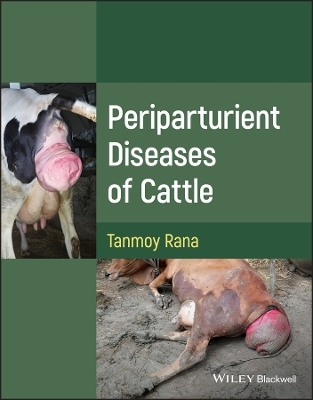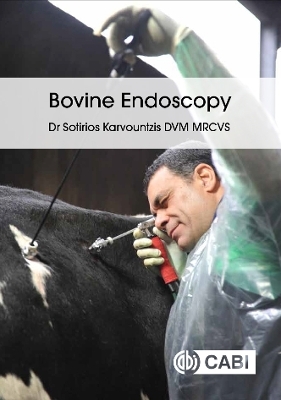
Report on the Control of Bovine Tuberculosis in Northern Ireland
Twelfth Report Together with the Minutes of Proceedings of the Committee Relating to the Report and the Minutes of Evidence
Seiten
2009
Stationery Office, Belfast (Verlag)
978-0-339-60281-6 (ISBN)
Stationery Office, Belfast (Verlag)
978-0-339-60281-6 (ISBN)
- Keine Verlagsinformationen verfügbar
- Artikel merken
Tuberculosis (bovine TB) is an infectious, bacterial disease which affects the health and welfare of cattle, lowers productivity and fertility and impacts on herd keepers' profitability. Actions to combat the disease include: regular testing of herds for the presence of the disease; and, slaughter of animals positively reacting to the test.
Tuberculosis (bovine TB) is an infectious, bacterial disease which affects the health and welfare of cattle, lowers productivity and fertility and impacts on herd keepers' profitability. Actions to combat the disease include: regular testing of herds for the presence of the disease; slaughter of animals positively reacting to the test; and, movement restrictions on farms where the disease is present. Bovine TB has been a long-standing major problem in Northern Ireland, with at least one quarter of the 25,000 herds of cattle here having had the disease. From 1997, there was a significant increase in cases of bovine TB, rising from just under 5 per cent of herds in 1997 to a peak of some 13 per cent in 2002, the highest bovine TB level in Europe. By 2007, herd prevalence had reduced to just below 7 per cent although, in 2008, there was a slight increase in incidence. Over the past 10 years, the Department has spent some GBP 200 million on its bovine TB control programme. The cost in 2007-08 was over GBP 21million. The Committee's overall conclusion is that the Department's progress in tackling bovine TB has been much too slow and the resulting costs prohibitive.
The disease has been a major problem in Northern Ireland for more than two decades - this is far too long. While progress has been made in reducing the incidence of bovine TB in recent years, the level remains significantly higher than in 1996 and many times greater than the 1986 level. The Committee acknowledges that the eradication of bovine TB in Northern Ireland represents a major challenge. Unfortunately, the evidence shows that, in several key respects, the Department has failed to meet that challenge. If the Department is to make real progress, it must adopt a much more strategic approach, with a clear focus on eradication of the disease rather than mere containment. It will also have to work much more closely with both the cattle industry and private veterinary practitioners than it has done in the past.
Tuberculosis (bovine TB) is an infectious, bacterial disease which affects the health and welfare of cattle, lowers productivity and fertility and impacts on herd keepers' profitability. Actions to combat the disease include: regular testing of herds for the presence of the disease; slaughter of animals positively reacting to the test; and, movement restrictions on farms where the disease is present. Bovine TB has been a long-standing major problem in Northern Ireland, with at least one quarter of the 25,000 herds of cattle here having had the disease. From 1997, there was a significant increase in cases of bovine TB, rising from just under 5 per cent of herds in 1997 to a peak of some 13 per cent in 2002, the highest bovine TB level in Europe. By 2007, herd prevalence had reduced to just below 7 per cent although, in 2008, there was a slight increase in incidence. Over the past 10 years, the Department has spent some GBP 200 million on its bovine TB control programme. The cost in 2007-08 was over GBP 21million. The Committee's overall conclusion is that the Department's progress in tackling bovine TB has been much too slow and the resulting costs prohibitive.
The disease has been a major problem in Northern Ireland for more than two decades - this is far too long. While progress has been made in reducing the incidence of bovine TB in recent years, the level remains significantly higher than in 1996 and many times greater than the 1986 level. The Committee acknowledges that the eradication of bovine TB in Northern Ireland represents a major challenge. Unfortunately, the evidence shows that, in several key respects, the Department has failed to meet that challenge. If the Department is to make real progress, it must adopt a much more strategic approach, with a clear focus on eradication of the disease rather than mere containment. It will also have to work much more closely with both the cattle industry and private veterinary practitioners than it has done in the past.
| Erscheint lt. Verlag | 29.6.2009 |
|---|---|
| Reihe/Serie | Northern Ireland Assembly Reports ; Session 2008-2009, 40/08/09/R |
| Zusatzinfo | Illustrations (some col.) |
| Verlagsort | Belfast |
| Sprache | englisch |
| Themenwelt | Veterinärmedizin ► Klinische Fächer |
| Veterinärmedizin ► Großtier ► Rind | |
| ISBN-10 | 0-339-60281-3 / 0339602813 |
| ISBN-13 | 978-0-339-60281-6 / 9780339602816 |
| Zustand | Neuware |
| Informationen gemäß Produktsicherheitsverordnung (GPSR) | |
| Haben Sie eine Frage zum Produkt? |
Mehr entdecken
aus dem Bereich
aus dem Bereich


